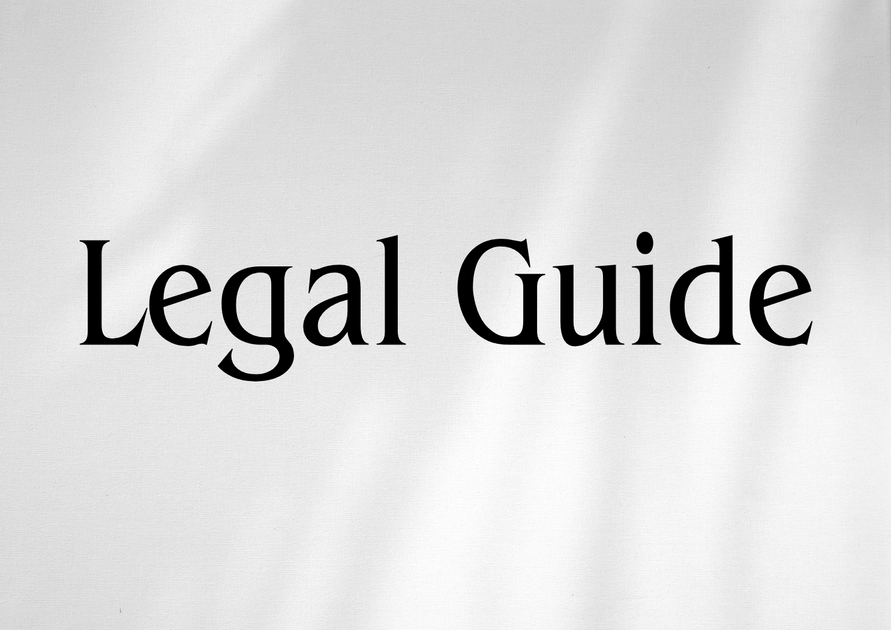Introduction
Enforcing a commercial judgment within the United Arab Emirates (UAE) legal framework holds significant implications for businesses, multinational corporations, financial institutions, and investors navigating an increasingly sophisticated and evolving commercial landscape. With the UAE’s ambitious drive to position itself as a global trading and investment hub, alongside landmark updates to federal judicial procedures in recent years, understanding the mechanisms, practicalities, and legal nuances behind judgment enforcement has never been more critical. This article provides a detailed, consultancy-grade analysis of how to enforce a commercial judgment in UAE courts in light of the latest legal reforms, including Federal Decree-Law No. 42 of 2022 On the Promulgation of the Civil Procedures Law and updates issued by the Ministry of Justice. Businesses and legal practitioners will find essential guidance, risk mitigation strategies, and insights on compliance throughout the enforcement process.
Table of Contents
- Overview of UAE Law on Judgment Enforcement
- Legal Framework and Procedural Steps
- Major Reforms Under Federal Decree-Law No. 42 of 2022
- Enforcement in Practice: Strategies and Case Scenarios
- Comparison: Old vs New UAE Procedures
- Risks of Non-Compliance and Mitigation
- Enforcing Foreign Judgments
- Compliance Checklist for 2025
- Conclusion and Future Outlook
Overview of UAE Law on Judgment Enforcement
The Central Legal Instruments
The enforcement of commercial judgments in the UAE is primarily governed by:
- Federal Decree-Law No. 42 of 2022 (On the Promulgation of the Civil Procedures Law), enforced as of February 2023, which supersedes previous regulations for civil and commercial case procedures.
- Cabinet Decision No. 57 of 2018 (amended in 2020) on the Executive Regulations of Civil Procedures.
- Related Ministerial Guidelines and regulatory circulars issued by the Ministry of Justice.
Within the UAE, the civil justice system distinguishes between the issuance of a commercial judgment (the ruling itself) and the enforcement of that judgment (the practical recovery of amounts or performance ordered by the court). Notably, while a victorious party may obtain a favorable decision, real value is only realized upon successful enforcement through the judicial system.
Key Definitions
- Commercial Judgment: An executable court ruling arising from commercial disputes, issued by competent UAE civil courts, including the DIFC, ADGM, and onshore courts.
- Enforcement Writ: An official order, typically appended to the judgment, authorizing the enforcement procedure through the UAE’s execution departments.
This distinction is critical, as there remain significant variances between declaratory court rulings and judgments that can be forcibly executed against assets or operations—especially with several recent reforms clarifying and expediting this pathway.
Legal Framework and Procedural Steps
The Enforcement Pathway: Step by Step
The execution or enforcement of commercial judgments in the UAE is structured around a formalized pathway administered by the courts’ execution departments. The following summarizes the updated standard procedure as stipulated under the Federal Decree-Law No. 42 of 2022 and pertinent UAE Cabinet Decisions:
- Issuance of a Final Judgment
- The commercial judgment must be deemed final and enforceable (i.e., not suspended by pending appeals or interim orders).
- Obtaining an Execution Writ
- The prevailing party (the judgment creditor) files a petition to the local court’s execution division for an execution writ.
- Submission to Execution Department
- Enforcement petition, supporting documentation, and execution writ are lodged with the enforcement office associated with the relevant court.
- Notification of the Judgment Debtor
- The court formally notifies the debtor, providing a legal notice period (typically 15 days) to comply voluntarily or settle.
- Compulsory Execution
- If payment or compliance is not received, the court execution department may initiate compulsory measures.
- Asset Identification and Seizure
- This includes the tracing, freezing, and potential seizure of assets, bank accounts, movable or immovable property, in accordance with UAE civil execution protocols.
- Distribution of Proceeds and Closing
- Upon sale of seized assets or recovery, proceeds are distributed to satisfy the judgment amount, with the execution department reporting closure of the file.
Timeframes and Court Jurisdiction
While the reforms have streamlined practical timelines—especially for payment orders and uncontested judgments—the duration from filing to enforcement may vary based on the complexity of the case, the nature and location of assets, and responsiveness of the debtor. As with all judicial matters in the UAE, jurisdictional nuances (onshore courts vs. free zone DIFC/ADGM Courts) can also impact procedure and strategic planning.
Major Reforms Under Federal Decree-Law No. 42 of 2022
Landmark Updates and Their Practical Impact
The updated Civil Procedures Law (Federal Decree-Law No. 42 of 2022) represents a major advancement in enforcement mechanisms and access to justice for commercial parties in the UAE. The most critical reforms relevant to judgment enforcement include:
- Streamlined Enforcement of Payment Orders: Simplified process for summary payment orders in clear debt claims (especially useful for cheques and invoices).
- Digital Enforcement: Introduction of e-filing, electronic notifications, and integrated digital asset tracing tools in several emirates, as guided by Ministry of Justice digitalization initiatives.
- Accelerated Asset Seizure: Authority for execution departments to act swiftly against assets—especially perishable and movable assets—once a judgment becomes enforceable.
- Interim Measures: Empowerment for courts to grant interim security measures (prejudgment and post-judgment), such as asset freezing or injunctions, to safeguard recovery prospects.
- Enhanced Recognition of Foreign Judgments: Clearer criteria for recognizing and executing final and conclusive foreign judgments, subject to reciprocity and procedural safeguards.
| Area | Pre-2022 Law | After Decree-Law No. 42/2022 |
|---|---|---|
| Notification & Service | Manual, often lengthy, paper notifications | Digital service; e-notification legally valid |
| Payment Orders | Standard full litigation required | Streamlined; summary process for debts/cheques |
| Asset Tracing | Sequenced asset disclosure; lengthy tracing | Integration with e-government, real-time tracing |
| Foreign Judgments | Ad-hoc, varying acceptance | Codified reciprocity and harmonized standards |
Visual Suggestion: Insert a digital process flow diagram illustrating the new e-enforcement procedure from court filing to asset seizure, highlighting key digital touchpoints.
Enforcement in Practice: Strategies and Case Scenarios
Practical Steps for Judgment Creditors
The execution of a commercial judgment in the UAE is not automatic. Proactive, strategic action is essential to maximize recovery and manage risks. Key consultancy recommendations for judgment creditors include:
- Early Asset Due Diligence: Before initiating enforcement, conduct thorough public and private asset searches (through banks, land department, commercial registries, and UAE Central Bank portals) to identify viable sources for recovery.
- Leveraging Interim Attachments: Apply for precautionary orders (asset freezing, travel bans, or liens) where risk of dissipating assets is credible and urgent action is needed.
- Responsive Timing: File enforcement petitions without delay to avoid delays or asset shifts by the debtor.
- Utilize DIFC/ADGM Courts: For eligible contracts with jurisdiction clauses, consider electing for expedited enforcement through financial free zone courts, whose judgments can now be enforced onshore pursuant to federal circulars and memoranda of understanding.
Case Study: Enforcing Against a Defaulting Distributor
Scenario: A UAE-based supplier obtains a commercial court judgment against a non-paying distributor, including an award of AED 4.5 million. The distributor pivots operations and liquidates primary accounts in the months following the judgment.
Legal Strategy:
- Supplier files for immediate injunction against all known local bank accounts while simultaneously lodging the judgment with the execution court.
- Enforcement department serves notice; funds in identified accounts frozen pending investigation.
- Execution officer obtains land registry disclosure; real estate identified and seized.
- Debtor files temporary objection—execution court rejects and proceeds to auction the real estate, applying proceeds to the debt.
Consultancy Insight: Building Execution-Ready Contracts
Businesses are strongly advised to incorporate detailed jurisdiction, dispute resolution, and enforcement clauses at the contracting stage. Specify explicit acceptance of UAE court jurisdiction, elect enforceable venues, and reference recognized arbitration bodies, where practical. Such foresight can drastically reduce enforcement risks and delays if disputes arise.
Comparison: Old vs New UAE Procedures
| Enforcement Step | Old Process | 2022 Reform Outcome |
|---|---|---|
| Notice to Debtor | Manual service, common for delays | Electronic service, shorter periods |
| Initiating Asset Seizure | Multiple applications required | Unified request, digital submission |
| Interim Injunctive Relief | Limited, rarely pre-judgment | Expanded, robust process for quick action |
| Foreign Judgment Enforcement | Varying and inconsistent | Codified process, unified standards |
Risks of Non-Compliance and Mitigation
Challenges Faced by Judgment Creditors
Even with the streamlined procedures, several risks persist for parties seeking to enforce commercial judgments:
- Asset concealment or rapid transfer by debtors post-judgment
- Jurisdictional disputes, especially for cross-border claims or those involving offshore/Free Zone entities
- Delays caused by administrative errors in filing, incomplete documentation, or translation issues (Arabic is the court language)
- Procedural lapses or failure to comply with mandatory notice requirements
Best Practice Mitigation Strategies
| Risk | Consultancy Mitigation Step |
|---|---|
| Asset Dissipation | Prompt applications for interim freezing orders |
| Cross-border Enforcement Delays | Deploy specialized teams for asset tracing in relevant countries, invoke treaties (New York Convention/EU/UAE bilateral agreements) |
| Language/Translation Errors | Use certified legal translators, early review of all submissions |
Enforcing Foreign Judgments
The New Criteria for Recognition
Recognition and enforcement of foreign commercial judgments are governed by Articles 222–223 of Federal Decree-Law No. 42 of 2022. The UAE courts will recognize and enforce a foreign judgment provided:
- The foreign court had jurisdiction under the UAE’s conflict of laws rules;
- The defendant was served and had an opportunity to defend;
- The judgment is final and enforceable in its jurisdiction of origin;
- There is reciprocity (treaty or practice) between the UAE and the issuing country;
- The judgment does not violate UAE public order or Islamic Shari’a principles.
Practical Challenges and Solutions
Some practical hurdles include lack of clarity on reciprocity (especially with non-GCC or non-bilateral treaty countries), delays in obtaining certified translations, and complexity in locating assets. Companies are advised to obtain local legal opinions prior to initiating enforcement in the UAE for foreign awards, and to consider strategies such as parallel litigation or arbitral awards favorable under the New York Convention (to which the UAE is a signatory).
Compliance Checklist for 2025
Visual Suggestion: Insert a detailed compliance checklist infographic for judgment enforcement under the new UAE regime. Example elements below:
| Step | Mandatory Action | Practical Tip |
|---|---|---|
| Obtain Final Judgment | Verify no active appeals, confirm finality | Request official certificate from court registry |
| Draft & File Execution Petition | Submit through official court e-system | Double-check submission fields, attach full docs |
| Asset Search | Bank, LLC, vehicle, property searches | Request judicial assistance for government database access |
| Monitoring | Track all notifications from execution department | Assign dedicated liaison or UAE legal counsel |
Conclusion and Future Outlook
The enforcement of commercial judgments in the UAE has undergone substantial transformation in recent years, culminating in a more efficient, predictable, and digitized process. Federal Decree-Law No. 42 of 2022, together with continuing regulatory modernization by the Ministry of Justice, has specifically addressed historic pain points for creditors—streamlining service, introducing digital tools, and expanding interim and cross-border relief. As the UAE continues its trajectory as a premier global business center, clients are advised to remain vigilant, contractually prepared, and always engage specialist legal counsel to leverage the most current procedures. Ongoing developments in digital enforcement, asset tracing technologies, and international judicial cooperation will likely deepen and accelerate in the years to come.
For businesses, the prime takeaways are:
- Incorporate robust enforcement clauses in all contracts.
- Act swiftly upon judgment to protect assets.
- Adopt a dynamic, technology-enabled compliance approach to maximize recovery.
The UAE’s responsive, modern legal infrastructure offers enhanced confidence for investors and companies alike, provided they remain adaptive to evolving regulations. By making compliance and specialist legal consultation a core operational practice, businesses can mitigate risk, preserve value, and foster continued growth in the region’s dynamic commercial environment.




